10 Commandments of Firearm Safety Basic Firearm Safety Rules
Basic Firearm Safety Rules
Responsible firearm owners know the rules and how to handle their firearms safely so that accidents do not occur.
1. Treat every firearm as if it were loaded

- Respect firearms at all times.
- Never "play" with firearms.
- Never be caught in a position where you have to say, "I didn't know it was loaded."
- Keep the safety on until you are ready to shoot, carrying the firearm safely at all times.
2. Control the muzzle of your firearm

- Keep the barrel pointed in a safe direction. Never point a firearm at anything that you do not wish to shoot. Insist that your shooting and hunting companions do the same.
- Never discharge a firearm near someone's head. The shock of a muzzle blast can cause permanent hearing problems.
- Keep your fingers outside the trigger guard until you know for sure you are ready to shoot. Watch to make sure branches and other snags don't catch on the trigger by accident.
- Always approach the firearm from its side or rear. Use both hands when picking it up and make sure it is not loaded.
3. Be sure of your target and beyond
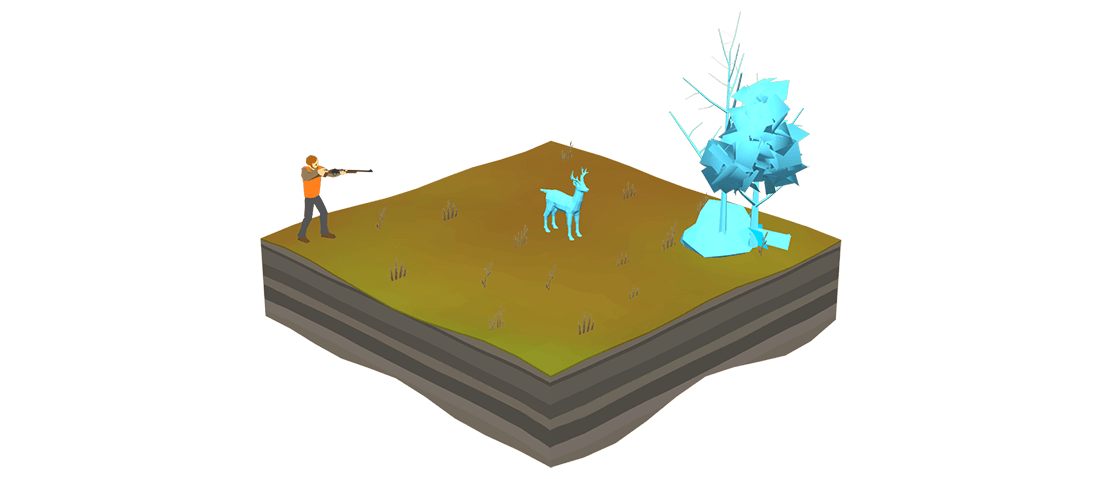
- Positively identify your target before you fire.
- Check to be sure the area beyond your target is clear of people, livestock, roads and buildings.
-
Be very careful when shooting in an area with hills. Another person may walk over a hill beyond your target and into your line of fire. Making sure you have a safe backstop means that the projectile cannot hit an unintended target.
4. Keep your finger off the trigger until ready to shoot
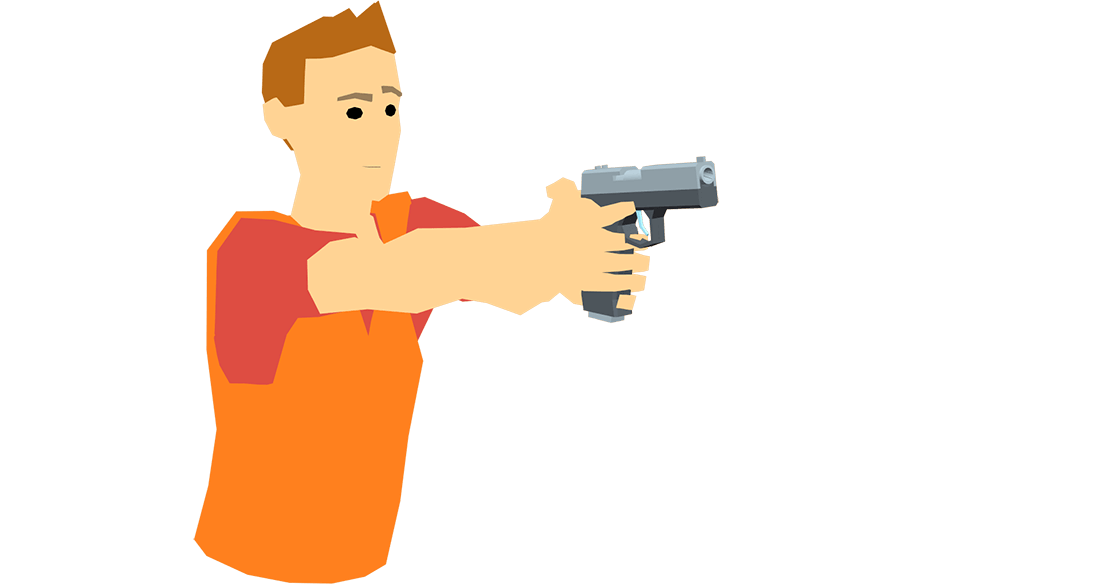
-
Our natural instinct when picking up a firearm is to put our finger on the trigger. We must train our mind to keep our finger off the trigger until we are ready to shoot. This way we avoid causing an accidental discharge.
5. Never shoot at water or a flat, hard surface

Be sure you have an adequate backstop. Once you pull the trigger, you have no control over a ricocheting bullet.
6. Only point a firearm at things you want to shoot
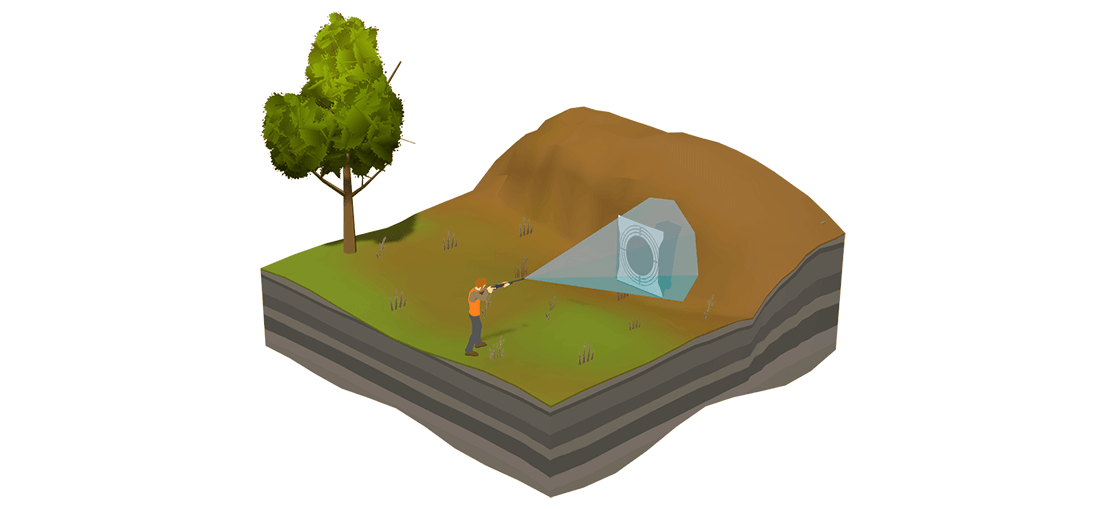
- Never use a scope sight for target identification. Scopes are not a substitute for binoculars.
7. Never climb a tree, cross a fence, or jump a ditch with a loaded firearm
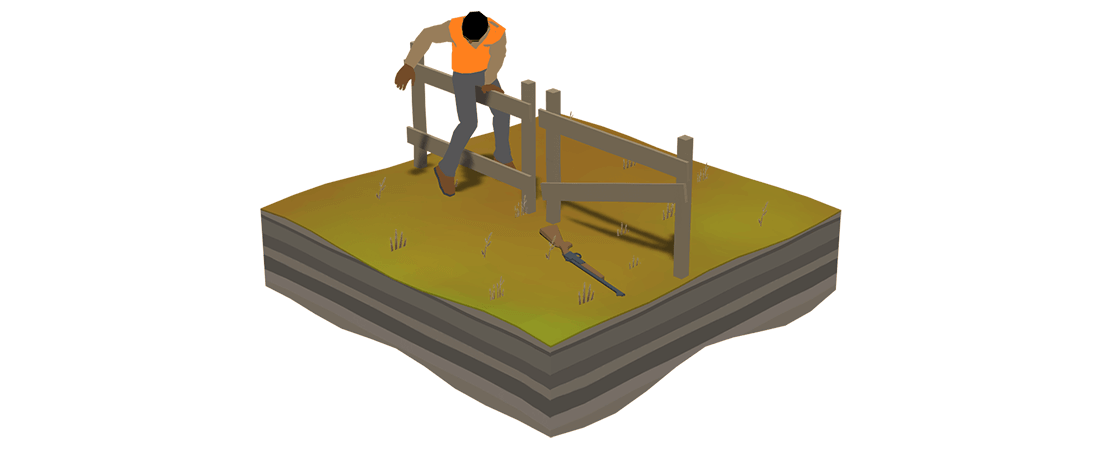
- When crossing a fence alone, open the action of your firearm and place it under the fence with the muzzle pointed away from you. Then cross the fence.
- When with a partner, first open the actions of both firearms. One person then holds both unloaded firearms while the other crosses the fence. Once across the fence, both firearms are then passed over from one person to the other. Don't hurry when crossing fences.
8. Store firearms and ammunition separately
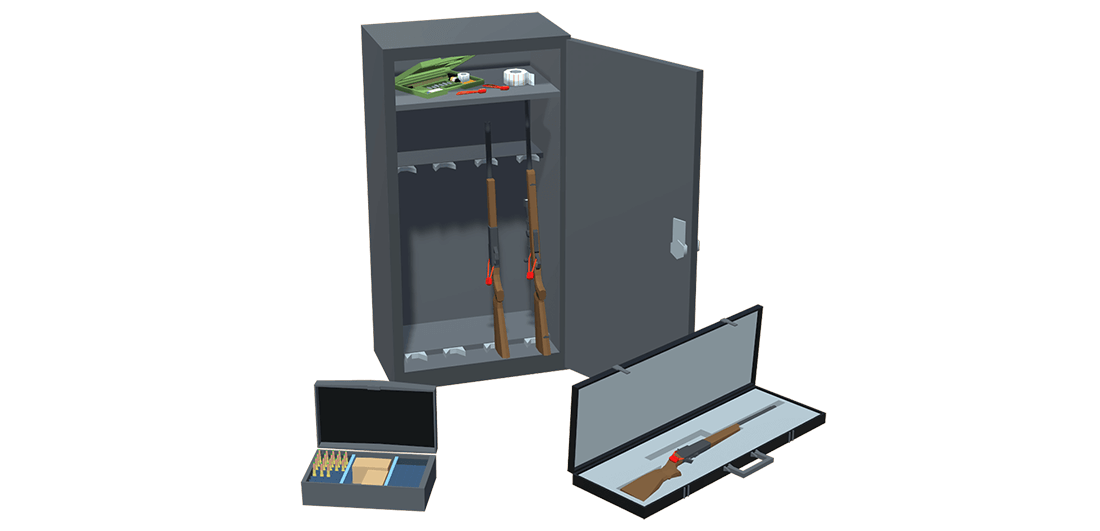
- Always store firearms under lock and key, beyond the reach of children.
- When not in use, a firearm must be unloaded with the action open.
- Use a firearm case to transport a firearm to and from the shooting area.
9. Be sure the barrel and action of your firearm are clear of all obstructions
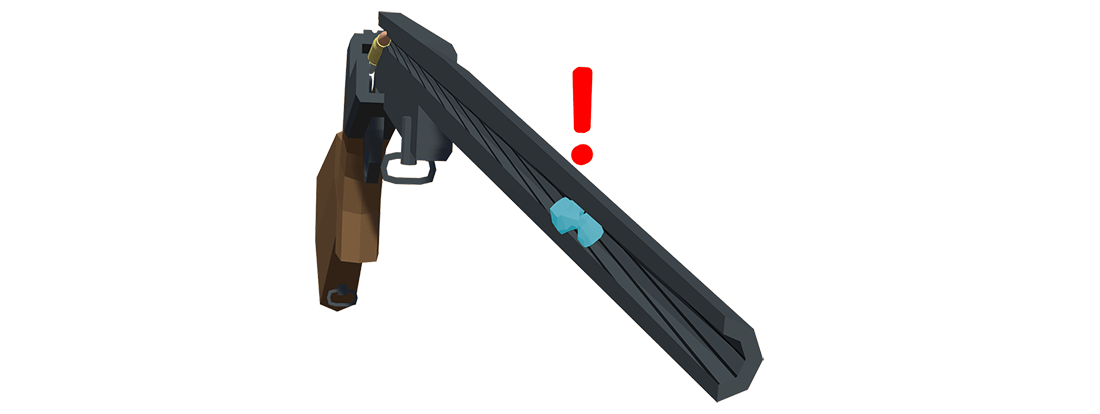
If you fall while carrying a firearm or accidentally set it down barrel first:
- Open the action
- Unload the firearm
- Check to make sure the barrel is not plugged with dirt, mud, or snow
10. Unload firearms when not in use

- When finished shooting, unload your firearm. Think safety first.
- When returning to a vehicle after hunting, unload your firearm away from the vehicle. Never have a loaded firearm in a vehicle.
- Always check a firearm yourself. Never take anyone else's word, or assume a firearm to be unloaded.
Most firearm accidents occur because of one or more of the following:
- Improper storage
- Careless or ignorant use
- Untrained users without supervision
- Failing to properly identify target
- Using wrong ammunition
Remember: Each and every time a firearm accident occurs, one or more of the commandments of firearm safety have been broken.